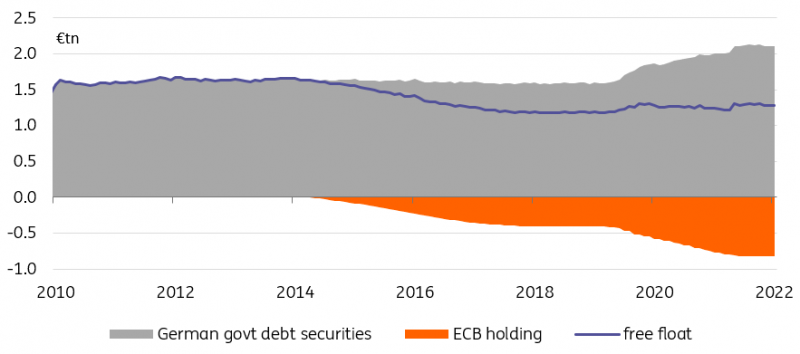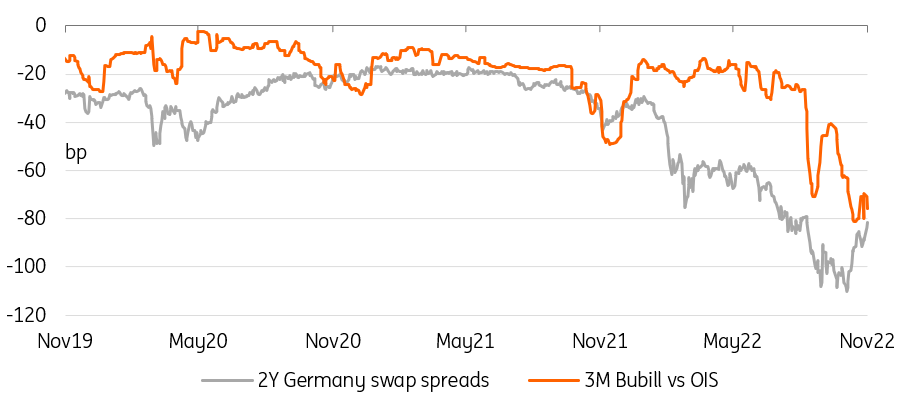Rates Spark: About These Tightening Swap Spreads
2022.11.09 09:52
[ad_1]

Budrigannews.com – Whilst supply runs its course this week, and the macro-focused participants await tomorrow, one development that has caught our attention is the sharp tightening of swap spreads. There is often more than one possible driver but one starting point is the German treasury’s decision in late October to boost the amount of bonds lent on the repo market, by €54bn, to finance part of its energy support package. Bloomberg reported yesterday that, according to its sources, net issuance of German debt should reach €45bn in 2023, nearly three times the originally planned €17bn.
Germany is the euro bond market where scarcity is most acute so both pieces of news go a long way towards alleviating fears that the last two months of 2022 would see a dash for collateral. Other factors, such as the increased chatter of European Central Bank intervention, or hopes that early targeted longer-term refinancing operation (TLTRO) repayments would release some collateral might have helped, but we list them only as secondary drivers of the collateral situation.
ECB purchases and austerity have led to a scarcity of German government debt:
 German Government Debt, ECB Purchases
German Government Debt, ECB Purchases
Improving Sentiment May Play a Role, but So Do Cautious Investors
Then there are the macro drivers, including decreased risk aversion after the perceived central bank pivot, and generally better performance of risk assets. These feel harder to pin down in our view. Firstly, it is true that swap spreads tend to widen when risk aversion increases, but regular readers know that we don’t really think there is much of a ‘pivot’ for investors to celebrate. Secondly, collateral scarcity have tended to dominate other factors in the past, so this seems a more logical explanation to us.
Finally, we would not underestimate the effect of near-term debt issuance. Admittedly, this week’s slate is by no means the heaviest of the year, but we expect investors to be particularly reluctant to buy bonds as the end date of this tightening cycle seems to be pushed further away into the future. The barrage of hawkish comments from the likes of Kazaks and De Guindos yesterday attest to this risk.
 2-Year German Swap Spreads, 3-Year Bubill Vs. Ois
2-Year German Swap Spreads, 3-Year Bubill Vs. Ois
German swap spreads have tightened but T-bills remain stretched against OIS swaps.
[ad_2]
Source link








